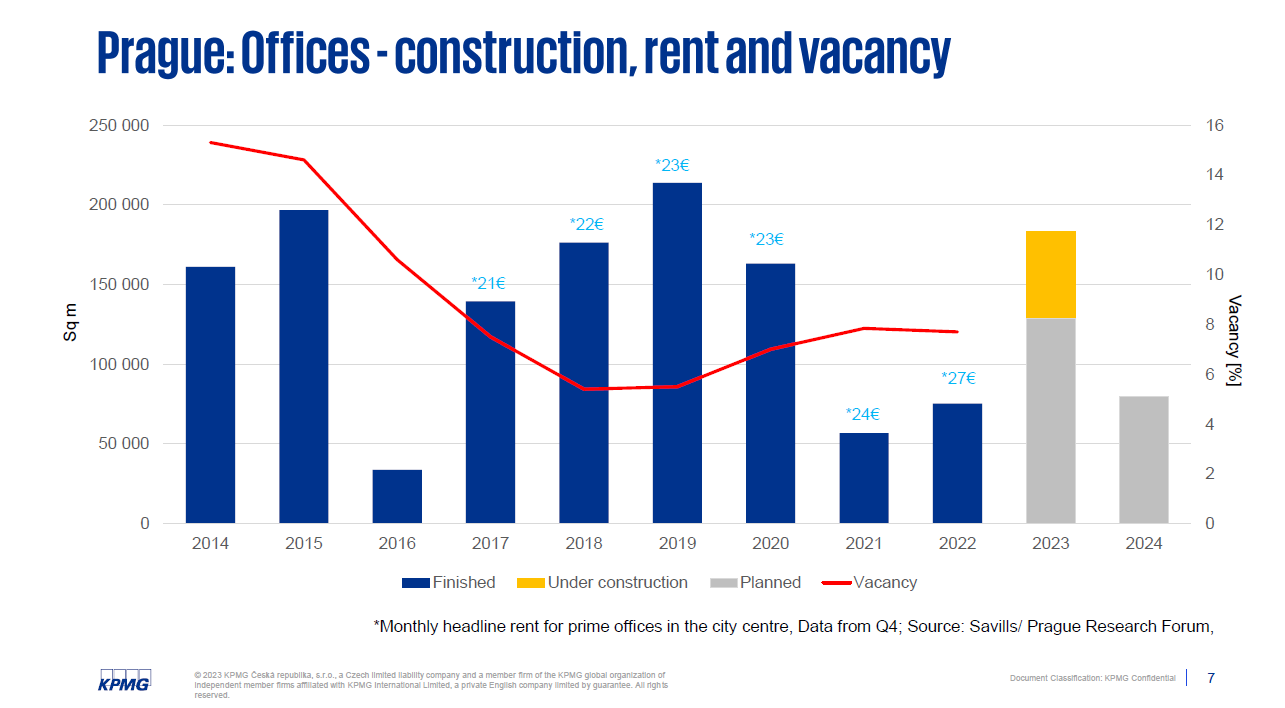
AmCham Real Estate Council: Offices are not dead. Home office is here to stay.
On March 30, AmCham Real Estate Council discussed the office market trends and outlook.
Pavel Kliment of KPMG outlined the market data and key trends. Companies need to return to productivity and the role of offices could increase.
Steven Tichy of White Star Real Estate shared the owner’s and developer’s point of view. ‘Tenants are not moving out, they want to understand the situation more,‘ he said. The demand for office space in the future will be determined by productivity (the ways how companies will want to achieve and increase productivity of employees). Also, a competitive advantage of the Czech Republic is a relatively low real estate tax compared to Slovakia, for example.
Ian Bryan of IBA maintains that more emphasis will be placed on how people work (and the design will follow). Hybrid working as the new normal brings along mid-week peak occupancies and empty offices on Mondays and Fridays. ‘The trend is the reuse of the existing space‘, he said. Office conversion to residential space is possible, but there are some challenges.
Rudolf Melezínek of 3M presented the company’s Work Your Way approach. An intensive communication campaigns and trainings were launched during the covid period, he explained, ‘to help each employee decide what is the best work and workspace arrangement for their role‘.
During Covid, Česká spořitelna managed to consolidate business, people, and technology which helped them reduce costs. Jitka Malátová shared their best practice, including the adoption of the ‘no additional desks‘ principle meaning not every employee has a desk at the office ready everyday, (and the same goes for parking lots). The company measures occupancy, creates maps, or seating plans, as it does matter where within the office space certain specific roles are seated. ‘The office area decreased in favor of social/collaborative space and meeting room area‘, Jitka explained.
Markéta Topinková of Squire Patton Boggs focused on real estate aspects of work from home and pointed out that the cost of team events, or trainings that should be attended by all employees does not disappear with remote work.
‘Offices are not dead. Home office is here to stay,‘ all participants agreed.
The discussion has reveled some key questions to be addressed:
- If home office is a right defined and determined by the government, is it still a benefit?
- How can we use the empty office space unused Mondays and Fridays?
- The regulators should understand, that home office means a cost for employers. Home office is not a means for employers to cut their costs. Employees would like to work from anywhere, while employers would like them to work primarily in the offices.
- EU work-life balance directive will have to be observed in the future, too.
- There are sectors and roles that are not suitable for home office, the creative industries working closely in groups or with clients in-person, for example.
- Legal aspects of remote work, including administrative burden for employers.
Follow AmCham Real Estate Council activities.
Log In





